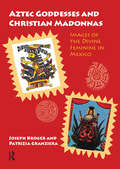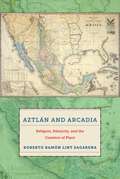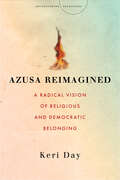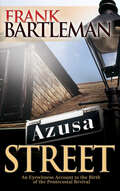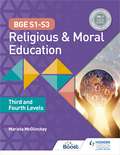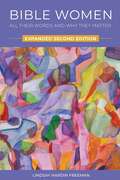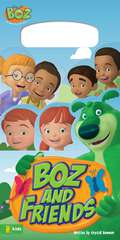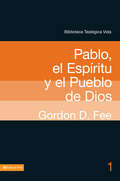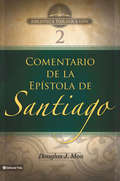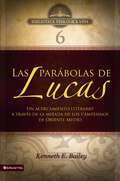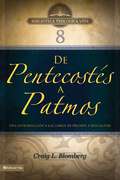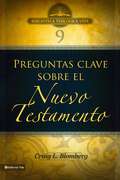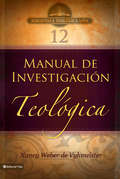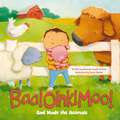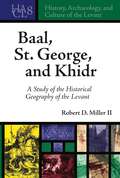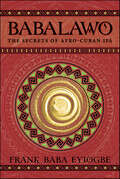- Table View
- List View
Aztec Goddesses and Christian Madonnas: Images of the Divine Feminine in Mexico
by Joseph Kroger Patrizia GranzieraThe face of the divine feminine can be found everywhere in Mexico. One of the most striking features of Mexican religious life is the prevalence of images of the Virgin Mother of God. This is partly because the divine feminine played such a prominent role in pre-Hispanic Mexican religion. Goddess images were central to the devotional life of the Aztecs, especially peasants and those living in villages outside the central city of Tenochtitlan (present day Mexico City). In these rural communities fertility and fecundity, more than war rituals and sacrificial tribute, were the main focus of cultic activity. Both Aztec goddesses and the Christian Madonnas who replaced them were associated, and sometimes identified, with nature and the environment: the earth, water, trees and other sources of creativity and vitality. This book uncovers the myths and images of 22 Aztec Goddesses and 28 Christian Madonnas of Mexico. Their rich and symbolic meaning is revealed by placing them in the context of the religious worldviews in which they appear and by situating them within the devotional life of the faithful for whom they function as powerful mediators of divine grace and terror.
Aztlán and Arcadia: Religion, Ethnicity, and the Creation of Place
by Roberto Ramón SagarenaIn the wake of the Mexican-American War, competing narratives of religious conquest and re-conquest were employed by Anglo American and ethnic Mexican Californians to make sense of their place in North America. These “invented traditions” had a profound impact on North American religious and ethnic relations, serving to bring elements of Catholic history within the Protestant fold of the UnitedStates’ national history as well as playing an integral role in the emergence of the early Chicano/a movement.Many Protestant Anglo Americans understood their settlement in the far Southwest as following in the footsteps of the colonial project begun by Catholic Spanish missionaries. In contrast, Californios—Mexican-Americans and Chicana/os—stressed deep connections to a pre-Columbian past over to their own Spanish heritage. Thus, as Anglo Americans fashioned themselves as the spiritual heirs to the Spanish frontier, many ethnic Mexicans came to see themselves as the spiritual heirs to a southwestern Aztec homeland.
Azusa Reimagined: A Radical Vision of Religious and Democratic Belonging (Encountering Traditions)
by Keri DayIn Azusa Reimagined, Keri Day explores how the Azusa Street Revival of 1906, out of which U.S. Pentecostalism emerged, directly critiqued America's distorted capitalist values and practices at the start of the twentieth century. Employing historical research, theological analysis, and critical theory, Day demonstrates that Azusa's religious rituals and traditions rejected the racial norms and profit-driven practices that many white Christian communities gladly embraced. Through its sermons and social practices, the Azusa community critiqued racialized conceptions of citizenship that guided early capitalist endeavors such as world fairs and expositions. Azusa also envisioned deeper democratic practices of human belonging and care than the white nationalist loyalties early U.S. capitalism encouraged. In this lucid work, Day makes Azusa's challenge to this warped economic ecology visible, showing how Azusa not only offered a radical critique of racial capitalism but also offers a way for contemporary religious communities to cultivate democratic practices of belonging against the backdrop of late capitalism's deep racial divisions and material inequalities.
Azusa Street Papers
by William Seymour Revival PressThe Azusa Street papers were published to herald the miraculous events that took place in Los Angeles. This great revival was led by a one eyed black man by the name of William Seymour who had a passion to see the bible come alive. People of all races worshipped together in the Spirit of unity. The Holy Spirit was poured out and many were saved, spoke in tongues, prophesied, healed, and sent out to the nations of the earth to spread this full gospel. This modern day pentecost would shake not only the church of the early 20th century but has touched generations of believers.
Azusa Street: An Eyewitness Account to the Birth of the Pentecostal Revival
by Frank BartlemanExperience the power and revelation of one of history’s greatest spiritual revivals as if you were there yourself. More than an observer or historian, author Frank Bartleman participated in the Azusa Street Revival and experienced the movement firsthand. His insight into the events leading up to Azusa, the revival itself, and the impact that resulted is perhaps the most detailed account of the falling of the Holy Spirit ever recorded. Your faith will explode as you read Bartleman’s challenging insights into faith-filled living from his experiences at Azusa Street. You will more fully understand…
B Is for Bonnet (Amish ABCs)
by Shelley Shepard GrayThe second in this delightfully moving new series from beloved, New York Times bestselling author Shelley Shepard Gray continues the story of four English-raised siblings who return to their grandparents' Ohio community planning to become Amish. But one by one, they will soon learn more about living—and love—than they'd ever imagined . . .Exploring the relationship between Amish and English cultures through the lens of a single family, the Amish ABCs series is perfect for fans of Beverly Lewis, Amy Clipston, and Charlotte Hubbard—and anyone who enjoys uplifting stories about faith, family, love, and the simple life. Raised by their divorced, lapsed-Amish father and English mother, siblings Jonny, Martin, Kelsey, and Beth can't wait to reinvent their lives. The four don't have much in common, but they long for the stable sense of family they felt when visiting their New Order grandparents, Josiah and Sylvia Schrock, in peaceful Holmes County, Ohio. And the Schrocks couldn't be more surprised when the grandkids want to try living with them—and joining their faith . . . When Jonny hears startling news about his health, he knows it's past time to change his life. Quitting college, he unexpectedly finds the fulfilling job of his dreams. And he's instantly smitten with cafe owner Treva Kramer, whose baked goods are as warm and delicious as her lively personality. But no matter how hard Jonny tries, he can't seem to get past her secret sadness and distrust. Can he prove that his feelings for her are for real—and forever—in time? A bad breakup left Treva heartbroken—and resolved to be independent without relying on anyone ever again. Exhausted from pouring everything she's got into her cafe, she&’s stunned by Jonny&’s easygoing ways—and drawn to his optimistic nature. But when she thinks his real interest is in becoming Amish, she's even more determined to stay focused—and keep her heart safe . . . Soon, deep secrets and hidden family truths will test Jonny and Treva in unexpected ways. And with help from his warm-hearted grandparents, he and Treva might gain the happiness they secretly long for—with each other.
B.U.G. (Big Ugly Guy)
by Jane Yolen Adam StempleSammy Greenberg would rather talk back to The Boyz--a gang of bullies at his school--and get his head stuck in the toilet than constantly be afraid. But when his friend Skink gets beaten up so badly that he has to go to the hospital, Sammy thinks he may be in over his head. He decides to build a golem--a mythical protector from Jewish folklore, made of clay and animated by the ineffable name of God. But this monster doesn't just protect him and Skink from The Boyz, he is also a great drummer for their rock-jazz-klezmer fusion band! But golems come with warnings. They will protect you until they don't.
BECOMING CHURCH: A Trail Guide for Starting Fresh Expressions
by Luke S. EdwardsAs the religious landscape of North America changes, churches find themselves in a rugged wilderness on the outskirts of culture. At the same time, a movement is emerging from the missional edges of our oldest denominations and is working its way through the church as a whole. Thousands of fresh expressions of church are gathering with their post-Christian neighbors, embarking on a journey to follow Jesus together. In these pages you will discover a way through the wilderness, a lightly worn path walked by everyday people who are building communities and becoming church.
BGE S1-S3 Religious and Moral Education: Third and Fourth Levels
by Mariela McGlincheySyllabus: CfE (Curriculum for Excellence, from Education Scotland)Level: BGE S1-3: Third and Fourth LevelsSubject: RMEModernise and refresh RME. Topics such as social media, gender identity and artificial intelligence are explored alongside world religions, as pupils think critically about our rapidly changing world.Covering all CfE Third and Fourth Level Benchmarks (plus some key content for Second Level), this ready-made and differentiated course puts progression for every pupil at the heart of your curriculum.> Ask questions and solve problems: 'Thinking skills' for later life are developed through sensitive, scaffolded consideration of Judaism, Christianity, Islam, Buddhism, Humanism and diverse and inclusive morality and belief topics that will capture every pupil's interest> Personalise the learning process: Each chapter contains learning intentions, starter tasks, explanations and activities (with accompanying success criteria) that you can deliver across one or two lessons, choosing the appropriate depth and pace for your pupils> Meet the needs of each pupil in your class: The content and activities are designed to ensure accessibility for those with low prior attainment, while 'Challenge' tasks will stretch high achieving pupils> Effectively check and assess progress: Activities that can be used for summative and formative assessment, 'progress check' questions, and suggestions for gathering a portfolio of evidence help you to monitor progression against the Experiences & Outcomes and Benchmarks> Lay firm foundations for National qualifications: The skills, knowledge and understanding established through the course will set up pupils for success in National 5 RMPS > Deliver the 'responsibility for all' Es and Os: Plenty of activities that address literacy, numeracy and health and wellbeing skills are threaded through the book
BGE S1-S3 Religious and Moral Education: Third and Fourth Levels
by Mariela McGlincheySyllabus: CfE (Curriculum for Excellence, from Education Scotland)Level: BGE S1-3: Third and Fourth LevelsSubject: RMEModernise and refresh RME. Topics such as social media, gender identity and artificial intelligence are explored alongside world religions, as pupils think critically about our rapidly changing world.Covering all CfE Third and Fourth Level Benchmarks (plus some key content for Second Level), this ready-made and differentiated course puts progression for every pupil at the heart of your curriculum.> Ask questions and solve problems: 'Thinking skills' for later life are developed through sensitive, scaffolded consideration of Judaism, Christianity, Islam, Buddhism, Humanism and diverse and inclusive morality and belief topics that will capture every pupil's interest> Personalise the learning process: Each chapter contains learning intentions, starter tasks, explanations and activities (with accompanying success criteria) that you can deliver across one or two lessons, choosing the appropriate depth and pace for your pupils> Meet the needs of each pupil in your class: The content and activities are designed to ensure accessibility for those with low prior attainment, while 'Challenge' tasks will stretch high achieving pupils> Effectively check and assess progress: Activities that can be used for summative and formative assessment, 'progress check' questions, and suggestions for gathering a portfolio of evidence help you to monitor progression against the Experiences & Outcomes and Benchmarks> Lay firm foundations for National qualifications: The skills, knowledge and understanding established through the course will set up pupils for success in National 5 RMPS > Deliver the 'responsibility for all' Es and Os: Plenty of activities that address literacy, numeracy and health and wellbeing skills are threaded through the book
BIBLE WOMEN: ALL THEIR WORDS AND WHYTHEY MATTER
by Lindsay Hardin Freeman"In a groundbreaking book, author Lindsay Hardin Freeman identifies every woman who speaks in the Bible, providing their words, context, and historical background. Through these women, God spoke, intervened, changed, illustrated, and proclaimed the storyof redemption"--
BJU Earth Science (Fifth Edition)
by Rachel Santopietro David M. QuigleyEarth Science (5th Edition) Student Text moves the student from the lithosphere of the earth itself to the hydrosphere in and on the earth to the atmosphere surrounding the earth and finally out into space visiting the solar system and the rest of the universe. All of this is a quest to understand God's created world. Case studies and other activities encourage students to think like scientists as they develop a biblical perspective of earth and space.
BLESS: 5 Everyday Ways to Love Your Neighbor and Change the World
by Dave FergusonBLESS is a simple, biblical, and relational set of 5 practices that everyone—young and old—can use every day to reach their neighbors, show them love, and change their world! From the beginning of the Bible, God&’s has spoken of blessing. Throughout the gospels, Jesus blessed others through his life and leadership. This book will break down the Bless principles, and help Christians engage in a relational form of evangelism. Readers will learn the five practices of BLESS: Begin (with prayer) to discover your personal mission Listen to others Eat with others and build the relationship Serve others Tell you Story. By establishing a relationship, and investing in others, opportunities will arise to share your story of God&’s influence upon your life.
BOZ and Friends (BOZ Series)
by Crystal Bowman“God Makes Everyone Special” BOZ’s friends like to do different things. But they don’t mind. They love to laugh and play together.
BTV # 01: Pablo, el Espíritu y el pueblo de Dios
by Gordon D. FeeEn Pablo, el Espíritu y el pueblo de Dios este erudito pentecostal ha redefinido los términos de la discusión sobre el Espíritu Santo de una manera que trasciende los paradigmas de hoy sobre la orientación carismática o no carismática. Sus palabras son un fuerte recordatorio de lo que Dios, a través de su Espíritu Santo, pretende que la iglesia sea... Su trabajo es un intento de dirigirnos de nuevo a la Biblia y revigorizar nuestra propia visión de cómo el Espíritu moviliza a la comunidad de creyentes en la iglesia local.
BTV # 02: Comentario de la Epístola de Santiago
by Douglas J. MooEste comentario altamente original busca hacer a la Epístola de Santiago clara y aplicable a la vida diaria del cristiano. Interactuando con los más recientes puntos de vista sobre Santiago, pero manteniendo las referencias académicas al mínimo, Douglas Moo introduce primero la Epístola de Santiago en su contexto histórico, y después provee comentarios, verso por verso, que explican el mensaje de Santiago tanto a los que la leen por primera vez como a la iglesia de hoy.
BTV # 06: Un acercamiento literario a través de la mirada de los campesinos de Oriente Medio (Biblioteca Teologica Vida)
by Kenneth E. BaileyEl trabajo extensivo de Bailey en la cultura campesina del Medio Oriente le ha ayudado en su intento de determinar las suposiciones culturales a las que habría llegado su audiencia al contarles las parábolas. Los mismos valores que comunicaron las parábolas en el tiempo de Jesús, sugiere Bailey, pueden ser descubiertos hoy en comunidades aisladas en lugares como Egipto, Líbano, Siria e Irak. Al explorar las visiones mundiales sobre estas culturas, es posible discernir, por ejemplo, lo que significó hace dos mil años atrás para un amigo venir a llamar a media noche, o que un hijo pidiera su herencia antes de que su padre muriera. A través de una combinación de análisis literario y cultural, estos estudios logran una gran cantidad de profundos avances en la interpretación de las parábolas de Jesús.
BTV # 08: Una introducción a los libros de Hechos a Apocalipsis (Biblioteca Teologica Vida)
by Craig L. BlombergEste libro es una lectura esencial para aquellos que buscan un estudio profundo del nacimiento y crecimiento de la iglesia primitiva. Siendo un volumen acompañante del galardonado Jesús y los Evangelios de Blomberg, esta accesible investigación provee una introducción, un comentario y una aplicación para cada uno de veintitrés libros restantes del Nuevo Testamento, ayudando de esta forma a los estudiantes a captar su significado histórico, lingüístico y teológico.
BTV # 09: Preguntas clave sobre el Nuevo Testamento (Biblioteca Teologica Vida)
by Craig L. BlombergEste libro se enfrenta a tres cuestiones teológicas de conocida dificultad: (1) la fiabilidad histórica del Nuevo Testamento, (2) el debate sobre quién fue el verdadero fundador del cristianismo, Jesús o Pablo, y (3) el modo en que los creyentes del siglo veintiuno debemos aplicar el Nuevo Testamento a la vida cotidiana. Todo ello lo hace ofreciendo respuestas bien trabajadas y razonadas, que nos ayudan a apreciar el valor de la fe cristiana y a acercarnos a ella de una forma más profunda. Basado en las investigaciones más serias, pero escrito en un estilo accesible a todos los públicos, este libro es una excelente guía para pastores, estudiantes y cualquier persona interesada en obtener una mejor comprensión del Nuevo Testamento.
BTV # 12: Manual de investigación teológica
by Nancy Jean VyhmeisterTrabajos de investigación, de Nancy Vyhmeister, se está convirtiendo con rapidez en el libro de texto de referencia modelo para redactar documentos de investigación en el campo de la religión y la teología. El mismo conduce al estudiante desde el principio de la asignación de un trabajo, a través de la fase de investigación, hasta que el trabajo es terminado. Esta segunda edición ofrece mejoras y un material adicional para cosas tales como el creciente campo de investigación en línea y cómo hacer la investigación relativa a la iglesia de una manera profesional. Los recursos para hacer la investigación se actualizan en todo el libro.
Baa! Oink! Moo! God Made the Animals
by Rhonda Gowler GreeneKids love mooing cows and hatching chicks, but who created these animals to do what they do? On a trip to the farm, one small child is determined to find out. In this padded board book from award-winning author Rhonda Gowler Greene, your child too can explore their questions about nature, and learn about the One who makes everything uniquely special.Mama, look!A cr-r-rack! A PEEP!Who makes it hatchand CHEEP CHEEP CHEEP?Kids love to ask questions, and in Baa! Oink! Moo! God Made the Animals, each &“Why?&” and &“Who?&” about the farm animals they&’ll encounter inside is answered in clever and fun rhymes … all pointing back to the God who made each sheep, cow, pig, horse, goat—all the animals on the farm—including puppies! And with sounds words for your child to call out on each spread, this message about God&’s amazing creation is also playful and interactive, making it perfect for repeated reading and story time.Baa! Oink! Moo! God Made the Animals:contains a variety of animals and their sounds, making it fun and easy to teach your child about the creatures on a farmdepicts a fun mother-child adventure, making it perfect for parental bonding timeis perfect for lap readingalso works for bedtime reading, with an ending that will help your child snuggle in for the night
Baal, St. George, and Khidr: A Study of the Historical Geography of the Levant (History, Archaeology, and Culture of the Levant #8)
by Robert D. Miller IIIn Western tradition, St. George is known as the dragon slayer. In the Middle East, he is called Khidr ("Green One"), and in addition to being a dragon slayer, he is also somehow the prophet Elijah. In this book, Robert D. Miller II untangles these complicated connections and reveals how, especially in his Middle Eastern guise, St. George is a reincarnation of the Canaanite storm god Baal, another "Green One" who in Ugaritic texts slays dragons.Combining art history, theology, and archeology, this multidisciplinary study demystifies the identity of St. George in his various incarnations, laying bare the processes by which these identifications merged and diverged. Miller traces the origins of this figure in Arabic and Latin texts and explores the possibility that Middle Eastern shrines to St. George lie on top of ancient shrines of the Canaanite storm god Baal. Miller examines these holy places, particularly in modern Israel and around Mount Hermon on the Syrian-Lebanese-Israeli border, and makes the convincing case that direct continuity exists from the Baal of antiquity to the St. George/Khidr of Christian lore.Convincingly argued and thoroughly researched, this study makes a unique contribution to such diverse areas as ancient Near Eastern studies, Roman history and religion, Christian hagiography and iconography, Quranic studies, and Arab folk religion.
Baal, St. George, and Khidr: A Study of the Historical Geography of the Levant (History, Archaeology, and Culture of the Levant)
by Robert D. Miller IIIn Western tradition, St. George is known as the dragon slayer. In the Middle East, he is called Khidr (“Green One”), and in addition to being a dragon slayer, he is also somehow the prophet Elijah. In this book, Robert D. Miller II untangles these complicated connections and reveals how, especially in his Middle Eastern guise, St. George is a reincarnation of the Canaanite storm god Baal, another “Green One” who in Ugaritic texts slays dragons.Combining art history, theology, and archeology, this multidisciplinary study demystifies the identity of St. George in his various incarnations, laying bare the processes by which these identifications merged and diverged. Miller traces the origins of this figure in Arabic and Latin texts and explores the possibility that Middle Eastern shrines to St. George lie on top of ancient shrines of the Canaanite storm god Baal. Miller examines these holy places, particularly in modern Israel and around Mount Hermon on the Syrian-Lebanese-Israeli border, and makes the convincing case that direct continuity exists from the Baal of antiquity to the St. George/Khidr of Christian lore.Convincingly argued and thoroughly researched, this study makes a unique contribution to such diverse areas as ancient Near Eastern studies, Roman history and religion, Christian hagiography and iconography, Quranic studies, and Arab folk religion.
Baba Yaga's Book of Witchcraft: Slavic Magic from the Witch of the Woods
by Madame PamitaMove Swiftly On Your Own Two Feet, for Baba Yaga You Must MeetDiscover ancient and modern Slavic magical practices through stories told by the legendary Baba Yaga herself. Learn about the magic of the sun, moon, and stars, as well as the magic of weather, animals, seasons, stones, food, beeswax, and more. Each chapter includes a piece of the fairy tale of Vasylyna, comments from Baba Yaga, and hands-on tips and techniques from author Madame Pamita.Explore magical activities alongside authentic folktales about the birth of the sun and the land of the blessed ones. Step-by-step instructions show you how to stitch Ukrainian folk embroidery motifs into protective charms, weave wreaths from herbs, make enchanted poppets, and work with the spirits of the forest, the hearth, and the sauna. With a bounty of tips and information, this book teaches you to embrace the beauty of these traditional practices and reclaim your personal magic.
Babalawo: The Secrets of Afro-Cuban Ifá
by Frank Baba EyiogbeCuban Ifá From An InsiderHidden within the mysterious Afro-Cuban religion of Santería, also known as Lucumí, there is a deep body of secrets and rituals called Ifá. This book pulls away the veil of secrecy to reveal exactly what Ifá is and how it works, exploring its history, cosmology, Orichas, initiations, mythology, offerings, and sacrifices. Join Frank Baba Eyiogbe in this fascinating introduction that discusses the functions of the babalawo, the role of women, the future of Ifá, and much more.Praise: "A wonderful and much needed addition to the literature on Afro-Cuban religion. Engagingly written, scholarly while remaining accessible . . . it presents an up-to-date exposition of both the history and contemporary philosophy of one of the world's most complex systems of divination."mdash;Stephan Palmié, Chair of the Department of Anthropology and Social Sciences at the University of Chicago and author of The Cooking of History: How Not to Study Afro-Cuban Religion
